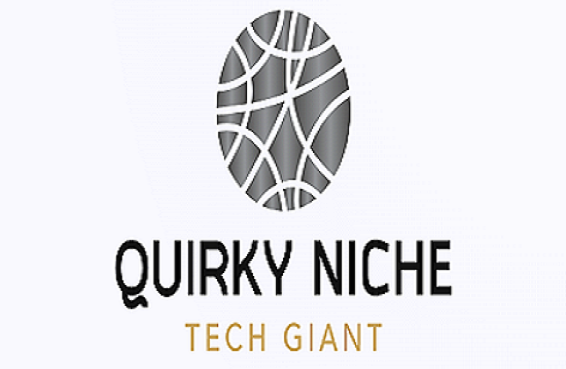In an ever-changing professional landscape, cultivating agile expertise is no longer optional—it’s essential. Employers increasingly prioritize individuals who can adapt swiftly to dynamic environments and excel in collaborative settings. Agile methodologies, originally designed for software development, have now expanded across industries, transforming project management and team dynamics. By developing agile skills, you position yourself as a valuable, adaptable professional in this fast-paced world.
1. Understanding Agile: What It Is and Why It Matters
What is Agile?
Agile is a flexible, iterative project management approach that emphasizes collaboration and adaptability. Originally rooted in software development, Agile focuses on breaking tasks into manageable pieces, or “sprints,” to deliver results incrementally. This structure allows teams to respond quickly to changing needs and maintain consistent progress.
Why Agile Matters in Modern Workplaces
In today’s competitive environment, organizations that adopt Agile often see faster turnaround times, improved customer satisfaction, and enhanced productivity. Professionals who embrace Agile methodologies become instrumental in driving these outcomes, making them highly sought after across industries.
Career Benefits of Agile Skills
Proficiency in Agile demonstrates your ability to:
- Adapt to changing priorities effortlessly
- Collaborate with cross-functional teams
- Deliver results efficiently within short timeframes
- Continuously refine and improve processes
Whether you work in technology, marketing, or operations, mastering Agile gives you a competitive edge and can open doors to leadership opportunities.
2. Key Agile Methodologies and Practices to Learn
To thrive in an Agile environment, understanding its core methodologies and practices is critical. Agile development revolves around collaboration, adaptability, and continuous feedback, enabling faster delivery and better results.
Popular Agile Frameworks
Familiarize yourself with these widely-used frameworks:
- Scrum: Employs sprints, specific roles (e.g., Scrum Master, Product Owner), and tools like sprint backlogs to manage iterative workflows.
- Kanban: A visual system focused on limiting work in progress and enhancing workflow efficiency.
- Extreme Programming (XP): Prioritizes engineering practices such as test-driven development and pair programming.
Essential Agile Practices
Excelling in Agile involves mastering the following practices:
- Iterative development and continuous integration
- Daily stand-up meetings to foster communication
- Sprint planning and retrospectives to optimize workflows
- User story mapping to align team objectives
By integrating these methodologies into your skillset, you’ll not only meet industry demands but also stand out as an adaptable and results-driven professional.
3. Agile Skills as a Competitive Advantage
Adaptability in Fast-Paced Workplaces
The demand for adaptable professionals skyrocketed during the pandemic, and Agile skills are now more critical than ever. By showcasing your ability to work efficiently and collaboratively in uncertain conditions, you increase your value in any industry.
Building a T-Shaped Skillset
Developing a T-shaped skillset—deep expertise in one area paired with broad knowledge across disciplines—sets you apart. Use a career development backlog to prioritize learning in iterative steps, embracing feedback and continuous improvement along the way.
Proving Leadership Potential
Employers are drawn to candidates who demonstrate measurable impact. Highlight projects where you’ve successfully applied Agile principles, adapting to challenges and delivering results. This evidence not only proves your expertise but also signals leadership potential.
4. Showcasing Your Agile Expertise
Highlight Core Principles
When discussing your Agile experience, emphasize your ability to implement principles like iterative development, continuous feedback, and adaptability. Use examples to quantify your impact and illustrate your contributions.
Demonstrate Collaboration and Flexibility
Employers value individuals who excel in teamwork and dynamic environments. Share examples of effective communication, conflict resolution, and process optimization. Highlight tools and methods you’ve used to enhance team performance.
Leverage Certifications and Keywords
Include Agile-related keywords like “Scrum Master,” “Kanban,” and “Iterative Development” on your resume and in interviews. Certifications such as Certified ScrumMaster (CSM) or SAFe Agilist further validate your expertise.
5. Committing to Lifelong Agile Learning
The journey to mastering Agile never truly ends. To remain competitive, continuously refine your skills and stay updated on emerging trends.
Invest in Certifications
Pursue certifications like CSM or Agile Coach to deepen your knowledge. Attend Agile workshops and conferences to stay at the forefront of innovation.
Embrace Continuous Improvement
Adopt an Agile mindset by applying feedback loops to your professional development. Regularly seek insights from peers and mentors to refine your approach.
Tackle Learning Incrementally
Use a career development backlog to focus on smaller, actionable goals. This Agile approach ensures you can adapt your learning priorities as needed.
Conclusion
In a world where change is constant, Agile expertise offers a pathway to success. By embracing Agile principles, you position yourself as an adaptable, collaborative, and forward-thinking professional ready to navigate any challenge. Whether you’re starting out or advancing in your career, integrating Agile into your skillset is a powerful investment.
Remember, the journey doesn’t end here—keep learning, applying, and improving. With persistence, you’ll not only meet the demands of today’s job market but also unlock new opportunities for growth and leadership.








